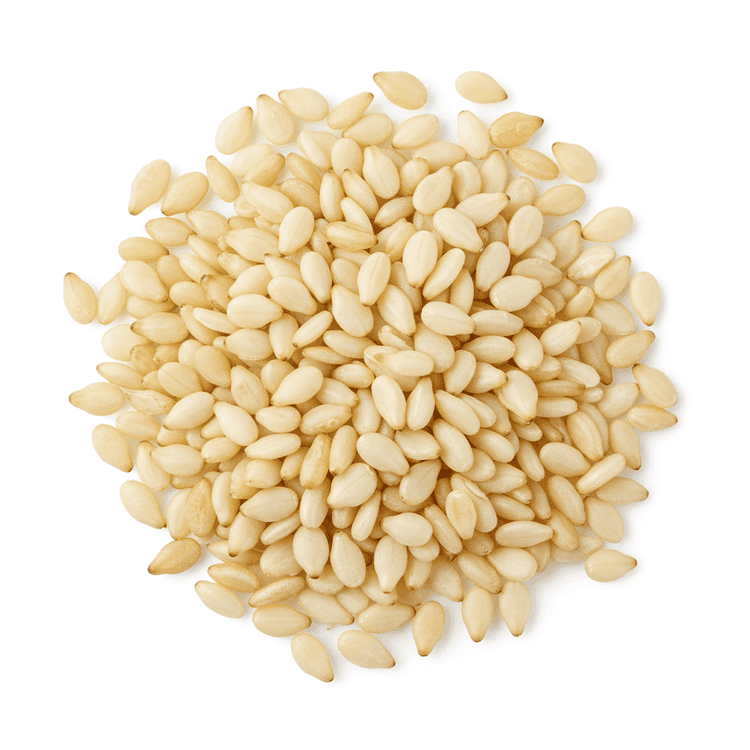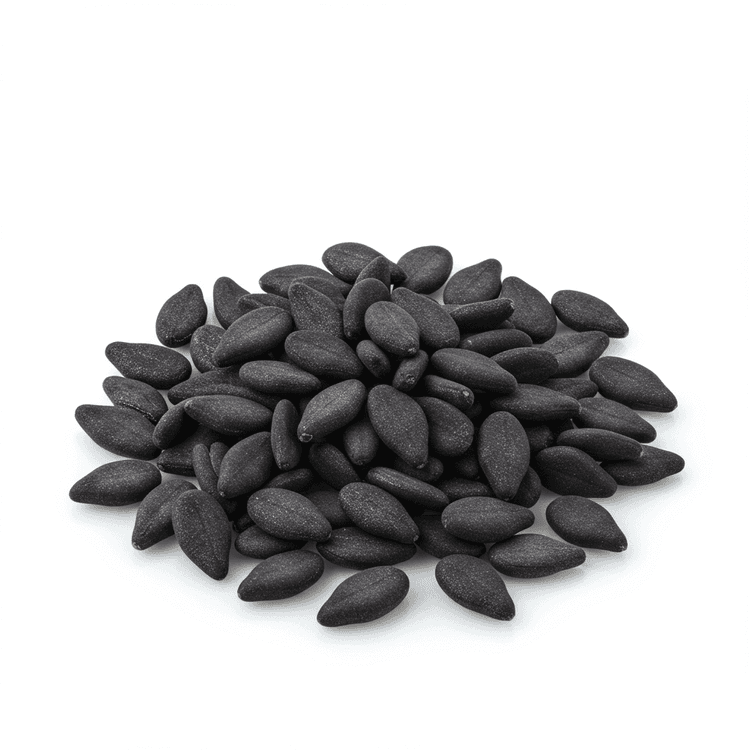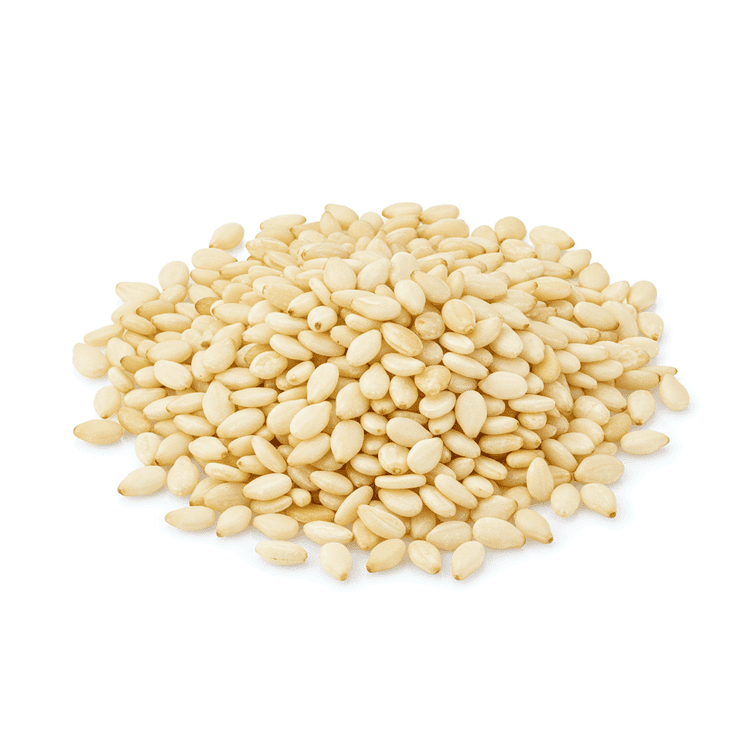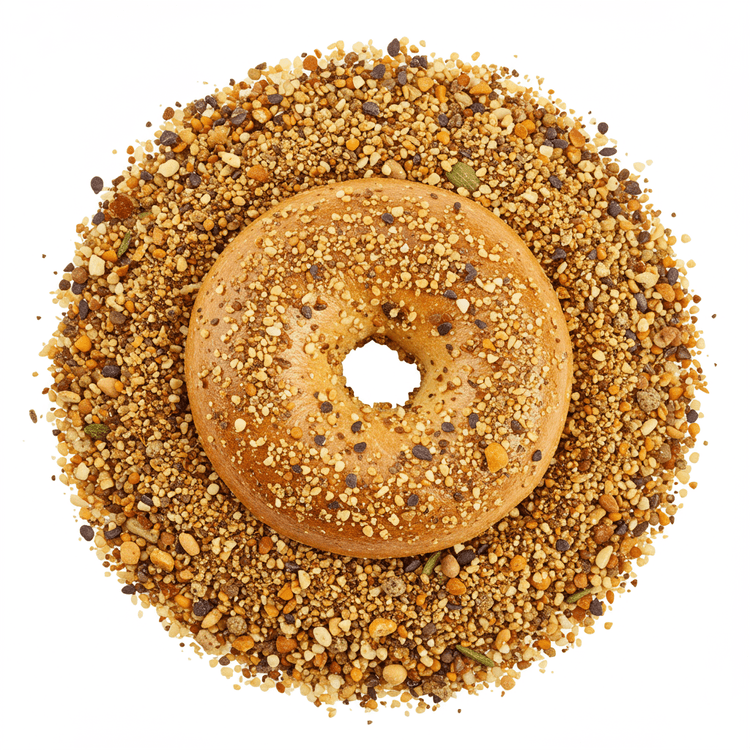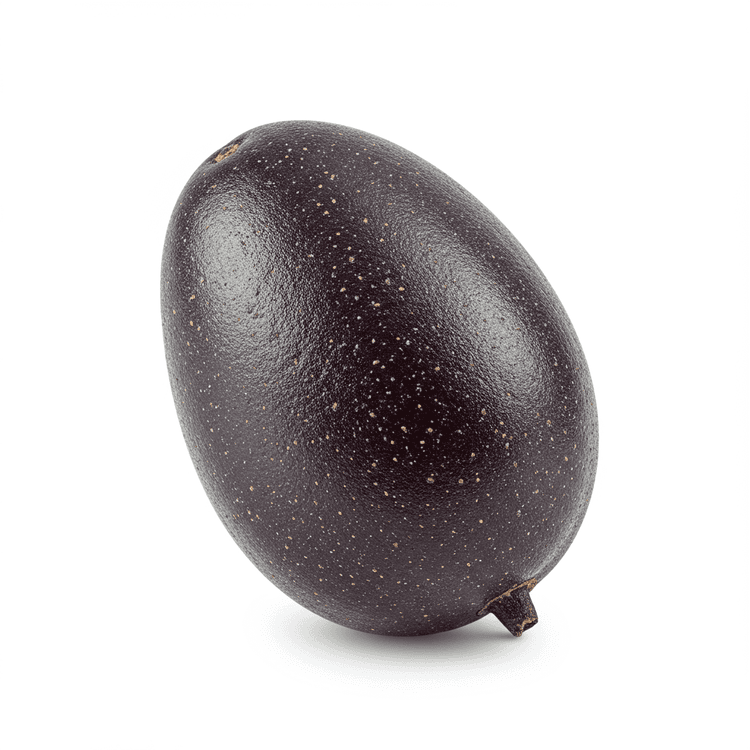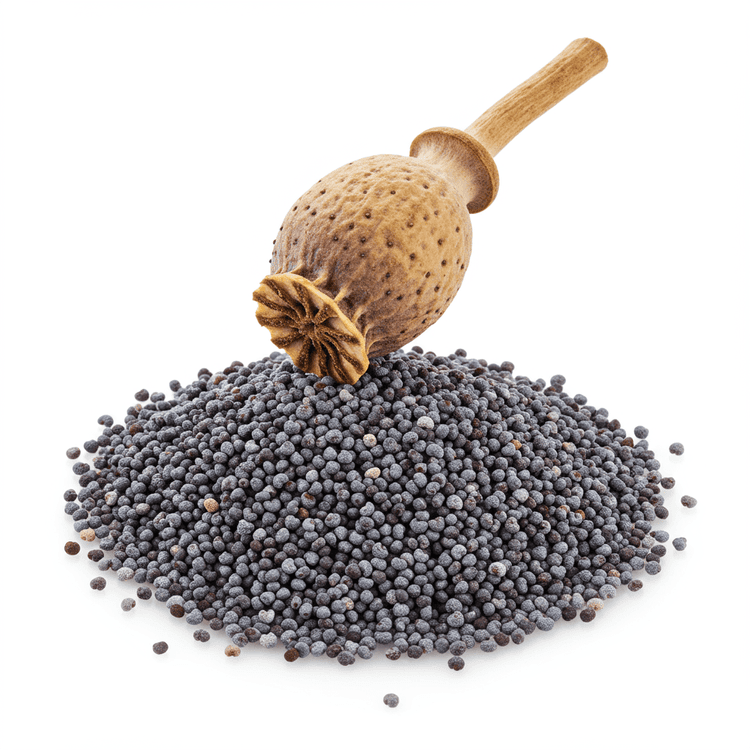
Poppy Seed
Poppy seeds are tiny, kidney-shaped oilseeds harvested from the opium poppy (Papaver somniferum). These minuscule seeds have a nutty, slightly sweet flavor and a characteristic crunchy texture. They come in various colors, including blue-gray, black, and white, with the blue-gray variety being the most commonly used in culinary applications. When added to baked goods, savory dishes, or sprinkled as a topping, poppy seeds offer a unique visual appeal and a subtle pop of flavor and texture. Discover the versatile uses of these tiny nutritional powerhouses!
Common Uses
- Poppy seeds are frequently incorporated into baked goods, like muffins, bagels, and sweet breads, providing a subtle nutty flavor and satisfying crunch. They enhance the texture and taste, making them a popular choice for bakers.
- Ground poppy seeds are used to create flavorful fillings for pastries, cakes, and dumplings. The finely ground seeds release their oils, resulting in a moist, intensely flavored paste perfect for enriching desserts.
- Poppy seeds add a delicate, nutty flavor and appealing visual texture to savory dishes, like noodles, salads, and vegetable dishes. They can be sprinkled on top or mixed in to create a unique sensory experience.
- Poppy seeds are often used as a decorative topping on breads, rolls, and other baked goods, lending a visually attractive speckled appearance while contributing a slight textural contrast. Their small size makes them ideal for evenly coating surfaces.
- Poppy seed oil, extracted from the seeds, is used as a flavorful cooking oil and salad dressing. It offers a delicate nutty flavor that enhances the overall taste of various dishes and provides beneficial unsaturated fats.
- In some cuisines, poppy seeds are used as a thickening agent for sauces and stews. When ground, the seeds release their starches, which help to bind liquids and create a richer, creamier consistency.
Nutrition (per serving)
Nutrition (per serving)
Calories
525.0kcal (26.25%)
Protein
18.0g (35.94%)
Carbs
28.1g (10.23%)
Sugars
1.4g (2.8%)
Healthy Fat
36.5g
Unhealthy Fat
4.5g
% Daily Value based on a 2000 calorie diet
Nutrition (per serving)
Calories
525.0kcal (26.25%)
Protein
18.0g (35.94%)
Carbs
28.1g (10.23%)
Sugars
1.4g (2.8%)
Healthy Fat
36.5g
Unhealthy Fat
4.5g
% Daily Value based on a 2000 calorie diet
Health Benefits
- Rich in minerals like manganese, copper, calcium, iron, and zinc, supporting bone health and overall well-being.
- Good source of dietary fiber, promoting healthy digestion and preventing constipation.
- Contains omega-6 fatty acids, contributing to heart health and reducing inflammation.
- May help in promoting relaxation and relieving insomnia due to its mild sedative properties.
- High in antioxidants, protecting cells from damage caused by free radicals.
- Provides energy due to its carbohydrate and healthy fat content.
Chefadora AI is here.
Experience smarter, stress-free cooking.
Storage Tips
To maintain freshness and prevent poppy seeds from going rancid, store them in an airtight container in a cool, dark, and dry place. Room temperature storage is suitable for short-term use (a few months). For longer storage (up to a year), refrigerate them. For extended storage, consider freezing the poppy seeds in an airtight container; this will help preserve their flavor and prevent spoilage. Ensure the container is properly sealed to prevent moisture absorption, which can lead to clumping or mold growth.
Marnirni-apinthi Building, Lot Fourteen,
North Terrace, Adelaide, South Australia, 5000
Australia
